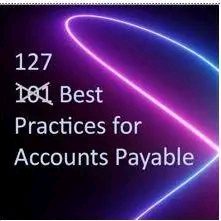How to calculate Period Costs in Accounting

In the world of accounting, period costs play a crucial role in determining the financial health of a business. These costs are essential for accurately assessing profitability and making informed decisions.
In this article, we will delve into the concept of period costs, explain how they are calculated, and highlight their significance in financial reporting.
By the end, you’ll have a solid understanding of period costs and their implications for your business.
What Are Period Costs?
Period costs, also known as operating expenses, are expenses incurred by a business during a specific accounting period.
Unlike product costs, which are associated with the manufacturing or acquisition of goods, period costs are indirectly related to the production process.
These costs are not directly assigned to a specific product or service but are incurred to support overall business operations.
Examples of Period Costs
1. Selling and Marketing Expenses
These include costs associated with advertising, sales commissions, promotional activities, and marketing campaigns.
2. General and Administrative Expenses
This category covers expenses related to salaries, rent, utilities, office supplies, legal fees, and other administrative costs.
3. Research and Development (R&D) Expenses
R&D costs encompass activities aimed at developing new products, improving existing ones, or conducting scientific research.
4. Depreciation and Amortization:
This expense category represents the systematic allocation of the cost of assets over their useful life. It includes the depreciation of tangible assets (e.g., equipment) and the amortization of intangible assets (e.g., patents).
How to Calculate Period Costs
Calculating period costs involves analyzing various expense accounts and determining the costs that can be attributed to the accounting period under consideration.
Here’s a general formula to calculate period costs:
Period Costs = Selling and Marketing Expenses + General and Administrative Expenses + R&D Expenses + Depreciation and Amortization
It’s important to consult your specific accounting system and financial statements to ensure all relevant expenses are included accurately.
Significance of Period Costs
Period costs are crucial for businesses and financial reporting due to the following reasons:
1. Profitability Analysis
By accurately calculating period costs, businesses can assess their profitability on a periodic basis. Tracking these costs helps identify trends and make informed decisions to improve financial performance.
2. Budgeting and Forecasting
Period costs provide valuable insights for budgeting and forecasting future expenses. This enables businesses to plan effectively and allocate resources efficiently.
3. Performance Evaluation
Comparing period costs across different periods or benchmarking against industry standards allows businesses to evaluate their performance and identify areas for improvement.
4. Financial Reporting and Compliance
Period costs are reported in financial statements such as income statements and are subject to regulatory compliance requirements. Accurate reporting of period costs ensures transparency and accountability.
FAQs
Are period costs tax-deductible?
Yes, period costs are generally tax-deductible as they are necessary for the operation of a business. However, it’s essential to consult with a tax professional or refer to relevant tax laws for specific guidelines.
Can period costs be capitalized as assets?
No, period costs cannot be capitalized as assets. They are expensed in the period they are incurred since they are not directly associated with the production of goods or services.
How can businesses reduce period costs?
Businesses can reduce period costs through strategies such as optimizing marketing campaigns, negotiating better supplier contracts, implementing cost-saving measures, and improving operational efficiency.
Do period costs include salaries and wages?
Yes, salaries and wages paid to employees for selling, marketing, administrative, and research and development activities are considered period costs.






I need the number and email address of altracred investment
Please how can I get crevance credit customer care number and email address